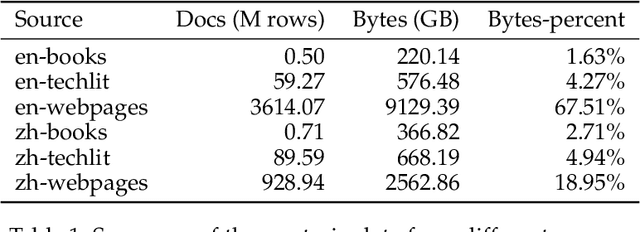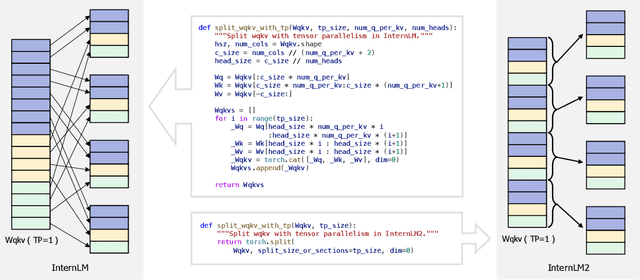Jingming Zhuo
ProSA: Assessing and Understanding the Prompt Sensitivity of LLMs
Oct 16, 2024



Abstract:Large language models (LLMs) have demonstrated impressive capabilities across various tasks, but their performance is highly sensitive to the prompts utilized. This variability poses challenges for accurate assessment and user satisfaction. Current research frequently overlooks instance-level prompt variations and their implications on subjective evaluations. To address these shortcomings, we introduce ProSA, a framework designed to evaluate and comprehend prompt sensitivity in LLMs. ProSA incorporates a novel sensitivity metric, PromptSensiScore, and leverages decoding confidence to elucidate underlying mechanisms. Our extensive study, spanning multiple tasks, uncovers that prompt sensitivity fluctuates across datasets and models, with larger models exhibiting enhanced robustness. We observe that few-shot examples can alleviate this sensitivity issue, and subjective evaluations are also susceptible to prompt sensitivities, particularly in complex, reasoning-oriented tasks. Furthermore, our findings indicate that higher model confidence correlates with increased prompt robustness. We believe this work will serve as a helpful tool in studying prompt sensitivity of LLMs. The project is released at: https://github.com/open-compass/ProSA .
InternLM2 Technical Report
Mar 26, 2024



Abstract:The evolution of Large Language Models (LLMs) like ChatGPT and GPT-4 has sparked discussions on the advent of Artificial General Intelligence (AGI). However, replicating such advancements in open-source models has been challenging. This paper introduces InternLM2, an open-source LLM that outperforms its predecessors in comprehensive evaluations across 6 dimensions and 30 benchmarks, long-context modeling, and open-ended subjective evaluations through innovative pre-training and optimization techniques. The pre-training process of InternLM2 is meticulously detailed, highlighting the preparation of diverse data types including text, code, and long-context data. InternLM2 efficiently captures long-term dependencies, initially trained on 4k tokens before advancing to 32k tokens in pre-training and fine-tuning stages, exhibiting remarkable performance on the 200k ``Needle-in-a-Haystack" test. InternLM2 is further aligned using Supervised Fine-Tuning (SFT) and a novel Conditional Online Reinforcement Learning from Human Feedback (COOL RLHF) strategy that addresses conflicting human preferences and reward hacking. By releasing InternLM2 models in different training stages and model sizes, we provide the community with insights into the model's evolution.
T-Eval: Evaluating the Tool Utilization Capability of Large Language Models Step by Step
Jan 15, 2024



Abstract:Large language models (LLM) have achieved remarkable performance on various NLP tasks and are augmented by tools for broader applications. Yet, how to evaluate and analyze the tool-utilization capability of LLMs is still under-explored. In contrast to previous works that evaluate models holistically, we comprehensively decompose the tool utilization into multiple sub-processes, including instruction following, planning, reasoning, retrieval, understanding, and review. Based on that, we further introduce T-Eval to evaluate the tool utilization capability step by step. T-Eval disentangles the tool utilization evaluation into several sub-domains along model capabilities, facilitating the inner understanding of both holistic and isolated competency of LLMs. We conduct extensive experiments on T-Eval and in-depth analysis of various LLMs. T-Eval not only exhibits consistency with the outcome-oriented evaluation but also provides a more fine-grained analysis of the capabilities of LLMs, providing a new perspective in LLM evaluation on tool-utilization ability. The benchmark will be available at https://github.com/open-compass/T-Eval.
 Add to Chrome
Add to Chrome Add to Firefox
Add to Firefox Add to Edge
Add to Edge